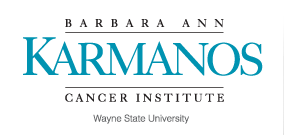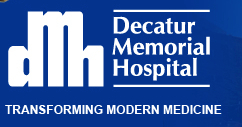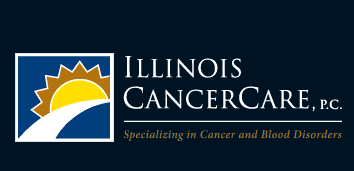Cediranib Maleate With or Without Lenalidomide in Treating Patients With Thyroid Cancer
| Status: | Active, not recruiting |
|---|---|
| Conditions: | Cancer, Cancer, Endocrine |
| Therapuetic Areas: | Endocrinology, Oncology |
| Healthy: | No |
| Age Range: | 18 - Any |
| Updated: | 2/28/2019 |
| Start Date: | September 9, 2010 |
Phase I/II Trial of Cediranib Alone or Cediranib and Lenalidomide in Iodine 131-Refractory Differentiated Thyroid Cancer
This partially randomized phase I/II trial studies the side effects and best dose of
cediranib maleate when given together with or without lenalidomide and to see how well they
work in treating patients with thyroid cancer. Cediranib maleate may stop the growth of tumor
cells by blocking some of the enzymes needed for cell growth. Lenalidomide may stop the
growth of thyroid cancer by blocking blood flow to the tumor. It is not yet known whether
cediranib maleate is more effective when given together with lenalidomide in treating thyroid
cancer.
cediranib maleate when given together with or without lenalidomide and to see how well they
work in treating patients with thyroid cancer. Cediranib maleate may stop the growth of tumor
cells by blocking some of the enzymes needed for cell growth. Lenalidomide may stop the
growth of thyroid cancer by blocking blood flow to the tumor. It is not yet known whether
cediranib maleate is more effective when given together with lenalidomide in treating thyroid
cancer.
PRIMARY OBJECTIVES:
I. Determine the maximum tolerated dose (MTD) of cediranib (cediranib maleate) plus
lenalidomide. (Phase I) II. Determine the progression-free survival rates of single agent
cediranib in patients with iodine refractory, unresectable differentiated thyroid cancer
(DTC) who have evidence of disease progression within 12 months of study enrollment. (Phase
II) III. Determine the progression-free survival rates of cediranib in combination with
lenalidomide in patients with iodine refractory, unresectable DTC who have evidence of
disease progression within 12 months of study enrollment. (Phase II) IV. Compare the
progression-free survival curves of single agent cediranib to combination therapy with
cediranib with lenalidomide. (Phase II)
SECONDARY OBJECTIVES:
I. Determine the response rate of cediranib in combination with lenalidomide in patients with
iodine refractory, unresectable DTC who have evidence of disease progression within 12 months
of study enrollment. (Phase I) II. Determine the toxicity, duration of response, progression
free survival, and overall survival in patients with DTC treated with cediranib plus
lenalidomide. (Phase I) III. Determine response rates and duration of response, early tumor
size changes, the toxicity, and overall survival in patients with DTC treated with cediranib
or cediranib plus lenalidomide. (Phase II) IV. Determine whether the presence of v-raf murine
sarcoma viral oncogene homolog B1 (B-RAF) or V-Ki-ras2 Kirsten rat sarcoma (K-RAS) mutations
in patients with DTC predict response to cediranib or cediranib plus lenalidomide. (Phase II)
OUTLINE: This is a phase I, dose-escalation study followed by a phase II study.
Phase I: Patients receive cediranib maleate orally (PO) once daily (QD) on days 1-28 and
lenalidomide PO QD on days 1-21 or 1-28. Courses repeat every 4 weeks in the absence of
disease progression or unacceptable toxicity.
Phase II: Patients are randomized to 1 of 2 treatment arms.
ARM A: Patients receive cediranib maleate PO QD on days 1-28. Courses repeat every 4 weeks in
the absence of disease progression or unacceptable toxicity.
ARM B: Patients receive cediranib maleate PO and lenalidomide PO as in Phase I. NOTE: As of
April 10, 2015, patients assigned to this arm are to discontinue lenalidomide and may
continue on cediranib alone.
After completion of study treatment, patients are followed up periodically.
I. Determine the maximum tolerated dose (MTD) of cediranib (cediranib maleate) plus
lenalidomide. (Phase I) II. Determine the progression-free survival rates of single agent
cediranib in patients with iodine refractory, unresectable differentiated thyroid cancer
(DTC) who have evidence of disease progression within 12 months of study enrollment. (Phase
II) III. Determine the progression-free survival rates of cediranib in combination with
lenalidomide in patients with iodine refractory, unresectable DTC who have evidence of
disease progression within 12 months of study enrollment. (Phase II) IV. Compare the
progression-free survival curves of single agent cediranib to combination therapy with
cediranib with lenalidomide. (Phase II)
SECONDARY OBJECTIVES:
I. Determine the response rate of cediranib in combination with lenalidomide in patients with
iodine refractory, unresectable DTC who have evidence of disease progression within 12 months
of study enrollment. (Phase I) II. Determine the toxicity, duration of response, progression
free survival, and overall survival in patients with DTC treated with cediranib plus
lenalidomide. (Phase I) III. Determine response rates and duration of response, early tumor
size changes, the toxicity, and overall survival in patients with DTC treated with cediranib
or cediranib plus lenalidomide. (Phase II) IV. Determine whether the presence of v-raf murine
sarcoma viral oncogene homolog B1 (B-RAF) or V-Ki-ras2 Kirsten rat sarcoma (K-RAS) mutations
in patients with DTC predict response to cediranib or cediranib plus lenalidomide. (Phase II)
OUTLINE: This is a phase I, dose-escalation study followed by a phase II study.
Phase I: Patients receive cediranib maleate orally (PO) once daily (QD) on days 1-28 and
lenalidomide PO QD on days 1-21 or 1-28. Courses repeat every 4 weeks in the absence of
disease progression or unacceptable toxicity.
Phase II: Patients are randomized to 1 of 2 treatment arms.
ARM A: Patients receive cediranib maleate PO QD on days 1-28. Courses repeat every 4 weeks in
the absence of disease progression or unacceptable toxicity.
ARM B: Patients receive cediranib maleate PO and lenalidomide PO as in Phase I. NOTE: As of
April 10, 2015, patients assigned to this arm are to discontinue lenalidomide and may
continue on cediranib alone.
After completion of study treatment, patients are followed up periodically.
Inclusion Criteria:
- Patients must have histologically or cytologically confirmed papillary, follicular,
papillary/follicular variant or Hurthle cell carcinoma; patients must be felt to be
poor candidates for or refractory to further surgery or radioactive I-131 therapy;
I-131 therapy must have been completed at least 4 weeks prior to enrollment; all
patients are expected to be on thyroxine suppression therapy
- Patients must have radiographically measurable disease; radiographically measurable
disease is defined as at least one lesion that can be accurately measured in at least
one dimension (longest diameter to be recorded) as > 20 mm with conventional
techniques or as > 10 mm with spiral computed tomography (CT) scan; lesions in
previously irradiated anatomic areas (external beam radiation) cannot be considered
target lesions unless there has been documented growth of those lesions after
radiotherapy
- Patients must have evidence of disease progression (20% objective growth of existing
tumors by Response Evaluation Criteria in Solid Tumors [RECIST] criteria) within the
last 12 months
- In the Phase I portion, there is no limit on prior systemic therapies (cytotoxic or
targeted therapies); however, patients who have discontinued previous vascular
endothelial growth factor (VEGF) inhibitors secondary to adverse events are not
eligible; in the Phase 2 portion, patients cannot have received more than 1 prior
chemotherapy (cytotoxic or targeted) regimen; prior VEGF-pathway inhibitors or B-RAF
inhibitors are permissible
- Life expectancy of greater than 12 weeks
- Eastern Cooperative Oncology Group (ECOG) performance status 0-2 (Karnofsky > 60%)
- Leukocytes > 3,000/mcL
- Absolute neutrophil count (ANC) > 1,500/mcL
- Platelets > 100,000/mcL
- Hemoglobin > 9 g/dL
- Serum calcium < 12.0 mg/dL
- Total serum bilirubin below or equal to upper limit of institutional normal
- Patients with hyperbilirubinemia due to Gilbert's syndrome may enroll in the
trial
- Aspartate aminotransferase (AST) (serum glutamic oxaloacetic transaminase
[SGOT])/alanine aminotransferase (ALT) (serum glutamate pyruvate transaminase [SGPT])
=< 2.5 x institutional upper limit of normal
- Creatinine below or equal to upper limit of institutional limits OR creatinine
clearance > 50 mL/min/1.73 m^2 for patients with creatinine levels above institutional
normal
- Patients must have corrected QT interval (QTc) < 480 msec
- The following groups of patients are eligible provided that they have New York Heart
Association (NYHA) class II cardiac function on baseline echocardiogram
(ECHO)/multi-gated acquisition scan (MUGA):
- Those with a history of class II heart failure who are asymptomatic on treatment
- Those with prior anthracycline exposure
- Those who have received central thoracic radiation that included the heart in the
radiotherapy port
- Females of childbearing potential (FCBP) must have a negative serum or urine pregnancy
test with a sensitivity of at least 25 mIU/mL within 10-14 days prior to and again
within 24 hours of starting lenalidomide and must either commit to continued
abstinence from heterosexual intercourse or begin TWO acceptable methods of birth
control, one highly effective method and one additional effective method AT THE SAME
TIME, at least 28 days before she starts taking lenalidomide; FCBP must also agree to
ongoing pregnancy testing; men must agree to use a latex condom during sexual contact
with a FCBP even if they have had a successful vasectomy; all patients must be
counseled at a minimum of every 28 days about pregnancy precautions and risks of fetal
exposure
- A female of childbearing potential is a sexually mature woman who: 1) has not
undergone a hysterectomy or bilateral oophorectomy; or 2) has not been naturally
postmenopausal for at least 24 consecutive months (i.e., has had menses at any
time in the preceding 24 consecutive months)
- Females of childbearing potential (FCBP) who receive cediranib alone must also have a
negative initial and ongoing pregnancy tests as described above; FCBP who receive
cediranib alone must also commit to continued abstinence from heterosexual intercourse
or begin TWO acceptable methods of birth control, one highly effective method and one
additional effective method AT THE SAME TIME, at least 28 days before she starts
taking cediranib; men on cediranib alone must agree to use a latex condom during
sexual contact with a FCBP even if they have had a successful vasectomy; all patients
receiving cediranib alone must be counseled at a minimum of every 28 days about
pregnancy precautions and risks of fetal exposure
- Ability to understand and the willingness to sign a written informed consent document
Exclusion Criteria:
- Patients who have had chemotherapy or radiotherapy within 4 weeks (6 weeks for
nitrosoureas or mitomycin C) prior to entering the study or those who have not
recovered from adverse events due to agents administered more than 4 weeks earlier; at
least 4 weeks must have elapsed since any major surgery; patients with prior use of
thalidomide or lenalidomide are excluded
- Patients may not be receiving any other investigational agents
- Patients with known brain metastases should be excluded; Note well (N.B): patients
with brain metastases with stable neurologic status following local therapy (surgery
or radiation) for at least 8 weeks from definitive therapy and without neurologic
dysfunction that would confound the evaluation of neurologic and other adverse events
are eligible for participation
- History of allergic reactions attributed to compounds of similar chemical or biologic
composition to cediranib, lenalidomide, or other agents used in this study
- Patients with poorly controlled hypertension (systolic blood pressure of 140 mmHg or
higher or diastolic blood pressure of 90 mmHg or higher) are ineligible
- Patients with 1+ or greater proteinuria on urinalysis should collect a 24 hour urine
collection; patients with greater than 1.5 gram protein/24 hours are excluded
- Patients must stop Epogen (epoetin alfa) at least 4 weeks prior to enrollment
- Patients with any condition (e.g., gastrointestinal tract disease resulting in
malabsorption, prior surgical procedures affecting absorption, or active peptic ulcer
disease) that impairs their ability to absorb cediranib tablets or lenalidomide
capsules are excluded; however, for patients who are unable to swallow cediranib
tablets, cediranib tablets may be administered as a dispersion in water (ie, either
drinking water, sterile water [for injection] or purified water); cediranib can be
administered via nasogastric tube or gastrostomy tube; for patients unable to swallow
lenalidomide whole, lenalidomide can be administered via gastrostomy feeding tube
- Patients with any of the following conditions are excluded:
- Serious or non-healing wound, ulcer, or bone fracture
- History of abdominal fistula, gastrointestinal perforation, or intra-abdominal
abscess within the past 28 days of treatment
- Any history of cerebrovascular accident (CVA) or transient ischemic attack within
12 months prior to study entry
- History of myocardial infarction, cardiac arrhythmia, stable/unstable angina,
symptomatic congestive heart failure, or coronary/peripheral artery bypass graft
or stenting within 12 months prior to study entry
- History of pulmonary embolism within the past 12 months
- Class III or IV heart failure as defined by the NYHA functional classification
system
- Patients with uncontrolled intercurrent illness including, but not limited to, ongoing
or active infections or psychiatric illnesses/social situations that would limit
compliance with study requirements are ineligible
- Pregnant women are excluded from this study; breastfeeding should be discontinued if
the mother is treated with cediranib with or without lenalidomide
- Human immunodeficiency virus (HIV)-positive patients on combination antiretroviral
therapy are ineligible
We found this trial at
31
sites
Ingalls Memorial Hospital As the area's only independent not-for-profit healthcare system, Ingalls has the ability...
Click here to add this to my saved trials
City of Hope Comprehensive Cancer Center City of Hope is a leading research and treatment...
Click here to add this to my saved trials
1500 East Medical Center Drive
Ann Arbor, Michigan 48109
Ann Arbor, Michigan 48109
800-865-1125

University of Michigan Comprehensive Cancer Center The U-M Comprehensive Cancer Center's mission is the conquest...
Click here to add this to my saved trials
University of Colorado Hospital, Site Top medical professionals, superior medicine and progressive change make University...
Click here to add this to my saved trials
22 South Greene Street
Baltimore, Maryland 21201
Baltimore, Maryland 21201
410-328-7904

University of Maryland Greenebaum Cancer Center The University of Maryland Marlene and Stewart Greenebaum Cancer...
Click here to add this to my saved trials
Click here to add this to my saved trials
Click here to add this to my saved trials
5841 S Maryland Ave
Chicago, Illinois 60637
Chicago, Illinois 60637
1-773-702-6180

University of Chicago Comprehensive Cancer Center The University of Chicago Comprehensive Cancer Center (UCCCC) is...
Click here to add this to my saved trials
Click here to add this to my saved trials
Decatur Memorial Hospital An American flag bearing only 48 stars waved above Decatur Memorial Hospital...
Click here to add this to my saved trials
4160 John R St #2122
Detroit, Michigan 48201
Detroit, Michigan 48201
(313) 833-1785

Wayne State University/Karmanos Cancer Institute Karmanos is based in southeast Michigan, in midtown Detroit, and...
Click here to add this to my saved trials
Click here to add this to my saved trials
Click here to add this to my saved trials
Click here to add this to my saved trials
Click here to add this to my saved trials
535 Barnhill Dr
Indianapolis, Indiana 46202
Indianapolis, Indiana 46202
(888) 600-4822

Indiana University Melvin and Bren Simon Cancer Center At the IU Simon Cancer Center, more...
Click here to add this to my saved trials
1441 Eastlake Ave
Los Angeles, California 90033
Los Angeles, California 90033
(323) 865-3000

U.S.C./Norris Comprehensive Cancer Center The USC Norris Comprehensive Cancer Center, located in Los Angeles, is...
Click here to add this to my saved trials
600 Highland Ave
Madison, Wisconsin 53792
Madison, Wisconsin 53792
(608) 263-6400

University of Wisconsin Hospital and Clinics UW Health strives to meet the health needs of...
Click here to add this to my saved trials
Click here to add this to my saved trials
Click here to add this to my saved trials
Click here to add this to my saved trials
Click here to add this to my saved trials
Illinois CancerCare-Peoria Illinois CancerCare, P.C. is a comprehensive practice treating patients withcancer andblood diseases. Our...
Click here to add this to my saved trials
Click here to add this to my saved trials
Click here to add this to my saved trials
Click here to add this to my saved trials
Click here to add this to my saved trials
660 S Euclid Ave
Saint Louis, Missouri 63110
Saint Louis, Missouri 63110
(314) 362-5000

Washington University School of Medicine Washington University Physicians is the clinical practice of the School...
Click here to add this to my saved trials
Click here to add this to my saved trials
Click here to add this to my saved trials
Click here to add this to my saved trials




